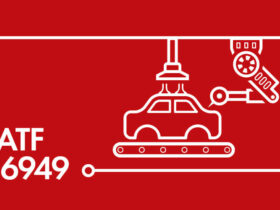Making the switch from military service to a commercial aviation career opens the door to new opportunities. For military pilots, it’s a chance to use the valuable experience gained in service while enjoying fresh career options. Whether you’re looking for better pay, more stability or the ability to live near one of the many airline hubs around the country, moving into commercial aviation can be a rewarding path. However, it also means learning to adapt to the different demands of the commercial airline world.
Your time in the military has provided you with top-notch skills through intense training, high-pressure missions and precise operations. These experiences create a strong base for success in commercial aviation. But more than just flying, it’s your ability to lead, adapt and handle complex tasks that will help you succeed in this new environment. Moving from a military cockpit to a commercial one—whether as a first officer pilot or eventually moving into a captain’s seat—means flying passengers while providing a seamless, customer-focused experience.
The qualities you’ve developed as a military pilot – such as staying calm under pressure, using advanced technology and navigating international airspace – make you a great candidate for commercial airlines. Employers in the airline industry not only appreciate your flying skills but also the leadership, discipline and resilience you bring to every flight.
For many experienced pilots looking to relocate or stay closer to family, the commercial airline industry offers flexibility in choosing where to be based. Major hubs like Washington D.C., Atlanta, Phoenix, Dallas-Fort Worth, St. Louis and Louisville have plenty of options. Many airlines also offer commuter benefits, allowing you to live in one place while flying out of another base. This flexibility can help you devote attention to both your career and your personal life, giving you a work-life balance that’s hard to find in other careers.
Another big advantage of transitioning to commercial airlines is career stability. Airlines provide competitive pay, excellent benefits and clear paths for growth. Unlike the unpredictable nature of military deployments, commercial aviation usually offers more consistent schedules, making it easier to plan your career and personal life for the long term.
For military pilots who have spent years serving or working in private aviation, commercial airlines provide opportunities for both professional and financial growth. The aviation industry is growing, and the demand for skilled, experienced pilots remains high. Your skills will always be needed, giving you long-term career security and room to grow.
In the end, moving from military service to commercial aviation is a rewarding journey. You’ll build on the skills you’ve already mastered while enjoying the benefits of a more stable and flexible career. For more information about making this transition, check out the accompanying resource and gain additional insights.











